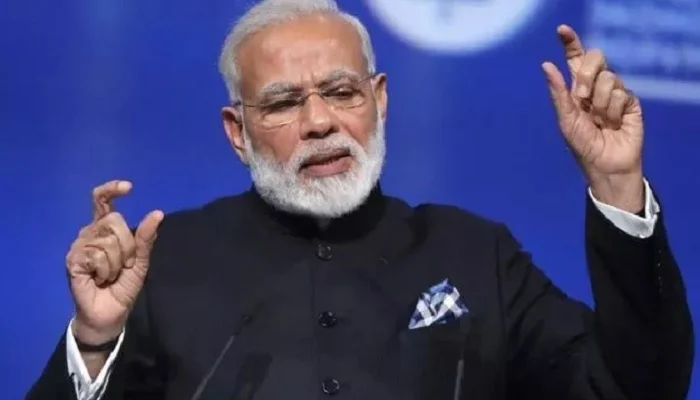Prime Minister Narendra Modi stated on Tuesday that India will halt the flow of water that once crossed its borders, days after suspending a crucial water treaty with Pakistan.
“India’s water used to go outside, now it will flow for India,” Modi said in a speech in New Delhi. “India’s water will be stopped for India’s interests, and it will be utilized for India.”
Pakistan has issued a warning that any tampering with its rivers would be considered “an act of war.”
Modi did not specifically mention Islamabad, but his speech follows New Delhi’s suspension of its part of the Indus Waters Treaty (IWT), signed in 1960, which governs water critical to Pakistan for consumption and agriculture.
New Delhi accuses Islamabad of backing a deadly attack on tourists in Pahalaga, a mountain resort in Indian Illegally Occupied Jammu and Kashmir (IIOJK) last month, which has triggered a series of heated threats and diplomatic retaliatory measures.
Pakistan denies these accusations, and the two sides have exchanged nightly gunfire since April 24 along the Line of Control (LoC), according to the Indian army.
United Nations chief Antonio Guterres stated on Monday that relations between Pakistan and India had reached a “boiling point,” warning that “now is the time for maximum restraint and stepping back from the brink” of war.
India altered the flow of the Chenab River on Tuesday, one of the three rivers placed under Pakistan’s control according to the now-suspended treaty.
“We have witnessed changes in the river (Chenab) which are not natural at all,” Kazim Pirzada, Punjab irrigation minister, told AFP.
Punjab, bordering India and home to nearly half of Pakistan’s 240 million citizens, is the country’s agricultural heartland, and “the majority impact will be felt in areas which have fewer alternate water routes,” Pirzada warned.
“One day the river had normal inflow and the next day it was greatly reduced,” Pirzada added.
In Azad Jammu and Kashmir, large quantities of water from India were reportedly released on April 26, according to the Jinnah Institute, a think tank led by a former Pakistani climate change minister.
“This is being done so that we don’t get to utilize the water,” Pirzada added.
Hindu-nationalist Modi had previously threatened to use water as a weapon in 2016 after an attack in IIOJK. “Blood and water cannot flow together,” he said at the time.
However, India is also a downstream state of China, which controls the Tibetan headwaters of the Brahmaputra, a vast river key to India’s northeast, and which then flows down through Bangladesh.



